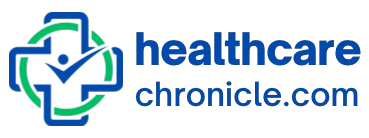Managing Shoulder Injury While Building Muscle
Dealing with a shoulder injury can be challenging, especially for those who are eager to continue their muscle-building journey. Understanding how to properly manage and adapt your fitness routine can not only help in maintaining muscle mass but also ensure a safe recovery process.
Understanding the Injury
Before making any adjustments to your workout regimen, it’s crucial to understand the nature of your shoulder injury. Injuries can range from mild strains to more severe conditions like rotator cuff tears. Consulting with a healthcare professional to diagnose and understand the severity of your injury is essential. This will guide the adaptations needed for your training program.
Adapting Your Workout Regimen
Once you have a clear understanding of your injury, you can begin adapting your workout regimen. Here are several strategies to consider:
- Focus on Lower Body and Core Training: While your shoulder heals, you can shift the focus of your workouts to the lower body and core. Exercises like squats, lunges, and leg presses can help in maintaining overall muscle mass and strength.
- Isometric Exercises: Isometric holds can be beneficial as they involve static muscle contractions without moving the joint. This can help maintain muscle strength without aggravating the shoulder.
- Use of Machines: Machines can help in maintaining proper form and reducing the risk of additional strain. They offer controlled movement that can isolate muscles other than the injured shoulder.
Techniques for Safe Training
When working out with an injury, safety should always come first. Here are some techniques to ensure you train safely:
- Warm-Up Properly: Always start with a proper warm-up to prepare your muscles and joints for exercise, which can help prevent further injury.
- Avoid Overhead Activities: Overhead exercises can be particularly stressful for an injured shoulder. Avoid exercises like overhead presses and pull-ups until your shoulder has adequately healed.
- Listen to Your Body: Pay attention to any pain or discomfort. If an exercise causes pain, stop immediately. Pain is a clear indicator that your shoulder is not ready for that particular movement.
Nutritional Support for Recovery
Nutrition plays a pivotal role in recovery. Ensuring your diet supports muscle maintenance and recovery can aid in your journey. Here are some nutritional tips:
- Protein Intake: Protein is essential for muscle repair and growth. Make sure to include ample protein in your diet from sources like lean meats, fish, eggs, and legumes.
- Anti-Inflammatory Foods: Consuming foods with anti-inflammatory properties can help reduce swelling and pain. Include foods like berries, fatty fish, nuts, and green leafy vegetables in your diet.
- Stay Hydrated: Adequate hydration is crucial for overall health and aids in the recovery process. Ensure you drink plenty of water throughout the day.
Consulting with Professionals
Working with professionals can significantly enhance your recovery and training program. Consider the following:
- Physical Therapists: A physical therapist can provide you with exercises specifically tailored to your injury, helping you maintain muscle mass without compromising the injured area.
- Sports Medicine Specialists: These professionals can offer insights into safe workout routines and recovery protocols that are specific to your needs.
Conclusion
Dealing with a shoulder injury while trying to build muscle requires patience, proper adjustments in your workout routine, and a focus on safety. By understanding your injury, adapting your workouts, focusing on nutrition, and consulting with professionals, you can continue to make progress while ensuring a full and safe recovery.





